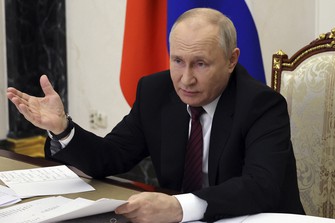
Russia’s Invasion of Ukraine: Consequences and Global Impact
By Ken Endo, Professor & Chair of International Politics, Graduate School of Law & Politics, the University of Tokyo
Impact on Global Norms and Institutions
Russia’s invasion of Ukraine has disregarded the norms and institutions that maintain stability in international relations. The principles of respect for sovereignty, preservation of territorial integrity, and pacta sunt servanda have been ignored. The United Nations, where these fundamental norms are set, has witnessed the violation of its core function of maintaining peace and security. This has resulted in increased violence, alliance formations, military expansion, and looming security dilemmas worldwide.
Failures in Handling the Collapse of the Soviet Empire
The collapse of the Soviet Union in 1991 created a misalignment of borders and ethnic groups, leading to the emergence of unrecognized states. The unresolved tension between a vengeful Russia and former Soviet republics has resulted in conflicts within the former USSR space. Failure to effectively manage this situation has left lasting challenges.
Dilution of Norms Related to Nuclear Weapons and Nuclear Power Generation
Russia’s invasion of Ukraine has undermined norms related to nuclear weapons. It occurred shortly after Ukraine joined other nuclear-weapon states in pledging restraint. The norm of negative security assurance, where nuclear-armed states promise not to threaten non-nuclear states, has been lost. Additionally, nuclear power plants have been weaponized and subjected to attacks during the war, raising concerns for nuclear nonproliferation.
Disregard for the Norm of Protecting Civilians
The invasion of Ukraine has seen the repeated massacres and assaults on civilians, including war crimes committed against children. The century-old norm of protecting civilians has been ignored, further destabilizing the situation.
Challenges in Global Governance
The war in Ukraine has made global governance increasingly difficult. It has disrupted freedom of trade, investment, and consensus on environmental initiatives. Global problems such as food shortages and inflation have intensified, with limited momentum for collective action. These challenges are especially pressing for East Asia, including Japan, which has its own regional security concerns.
Japan’s Security and the Shadow of Ukraine
In light of the invasion of Ukraine, Prime Minister Fumio Kishida has emphasized the importance of Japan’s regional security. With Japan surrounded by unfriendly, nuclear-armed states, lessons must be learned from Ukraine. Aggression can occur when a dissatisfied country seeks to change the status quo and has growing authoritarian tendencies. Japan’s survival and security require preparedness, regional alliances, and self-defense measures.
Evaluating the Threat to Japan: A Focus on Taiwan
While assessing Japan’s security, the potential threat to Taiwan from China demands attention. Although a full-scale invasion of Taiwan is unlikely in the immediate future, various scenarios exist, including missile attacks, maritime and air blockades, cyber-attacks, and cognitive warfare. Japan must be cautious and consider its response without unnecessarily provoking China or overestimating the power of the other side.
Importance of Dialogue and Coexistence
In addressing regional security, dialogue and diplomacy are essential for Japan. The balance between defense and politics must be maintained to avoid excessive mistrust and an obsession with security. Coexistence should remain the goal, and Japan must collaborate with allies and like-minded countries while adapting to potential outcomes, including the upcoming U.S. presidential election.
About Ken Endo
Ken Endo is a renowned political scientist, holding the position of Professor & Chair of International Politics at the Graduate School of Law & Politics, University of Tokyo. With expertise in European politics and security, he has contributed significantly to the study of Japan’s security through various research and academic positions.